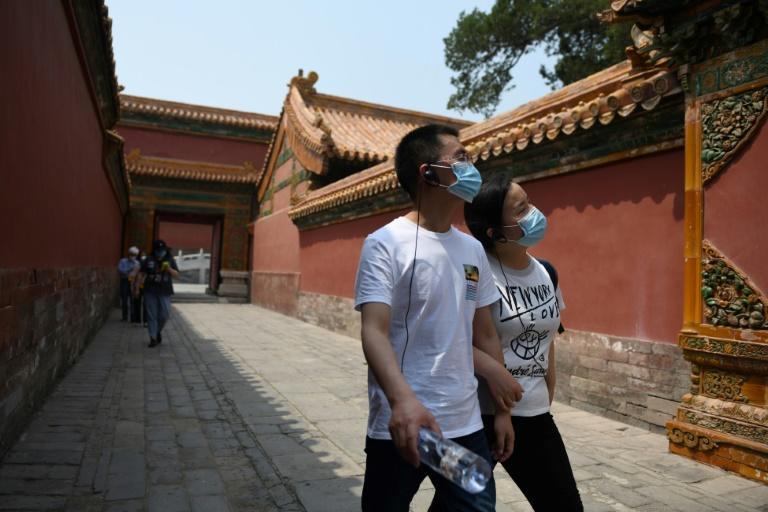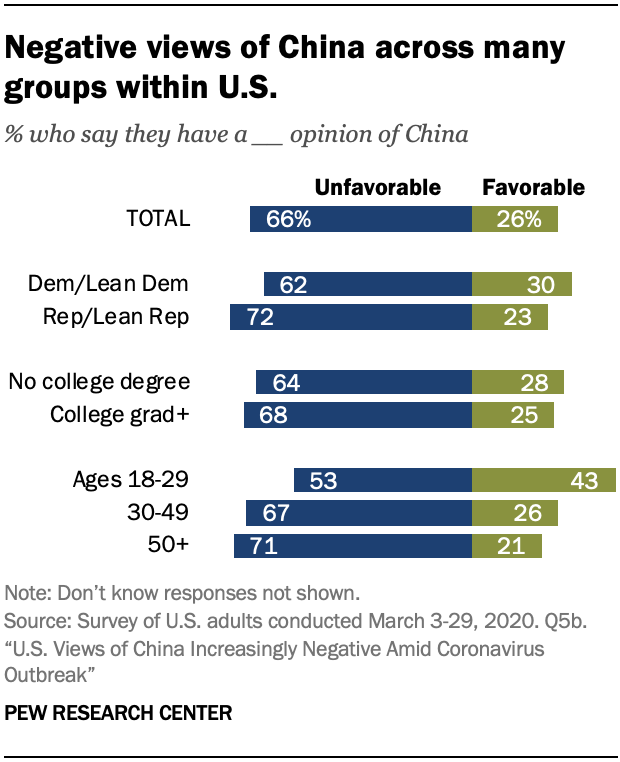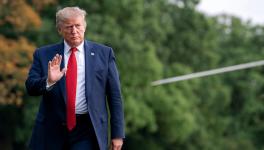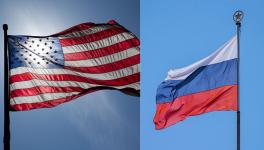Why Trump’s Vacillation on China is Well-Grounded

China cast the five-day Labour Day holidays as opportunity to ease pent-up travel demand within the country, May 1, 2020
The US President Donald Trump has tied himself and onlookers in knots by his alternating encomiums and diatribes against China over Covid-19 in the recent weeks. Only he can cut the Gordian knot and that he will be in a position to do only after November when the US presidential election gets over.
There could be different interpretations as to why Trump ratcheted up the rhetoric on China. Three explanations stand out. Prima facie, as China would have us believe, Trump possibly amplified his criticism of China to deflect from the administration’s own record on the coronavirus pandemic.
The New York Times carried a report on April 21 detailing that “An examination reveals the president was warned about the potential for a pandemic but that internal divisions, lack of planning and his faith in his own instincts led to a halting response.” The report said:
“The National Security Council office responsible for tracking pandemics received intelligence reports in early January predicting the spread of the virus to the United States, and within weeks was raising options like keeping Americans work from home and shutting down cities the size of Chicago. Mr. Trump would avoid such steps until March.”
In effect, Trump squandered vital time while the number of infections started to surge through February and early March. Over the period from Feb. 26 to March 16, the number of confirmed cases shot up from 15 to 4,226. Since then, over a million Americans have tested positive for the virus and authorities say hundreds of thousands more are likely infected and close to 70,000 lives have been lost.
Conceivably, a blame game was the last resort for the Trump administration to cover up its incompetence. Trump had taken a conciliatory approach through the middle of March, praising the job Chinese President Xi Jinping was doing, but the tone changed abruptly when he broadcast a new message on the “Chinese virus.”
However, on closer examination, Trump who has a keen eye on the news cycle, has no real need of a blame game. His approval rating in a Gallup poll released on April 30 stands at an incredible 49 percent. Clearly, his overall approval is above water. In particular, fifty percent said they approve of his handling of the pandemic.
This is despite the fact that the mounting jobless claims and volatile financial markets have deprived him of strongest argument for his reelection: a strong economy.
This lends credibility to the other two explanations for Trump’s mood swings on China. Trump has positioned himself to tap into the public mood in the US which has turned increasingly negative of China amid the coronavirus outbreak. A new Pew Research Center survey of Americans conducted in March reveals that roughly two-thirds say they have an unfavourable view of China, the most negative rating for the country since Pew began such surveys in 2005, and up nearly 20 percentage points since the start of the Trump administration in 2017.
Curiously, more Americans now see the US as the world’s leading economic power than at any time over the past 12 years and also overwhelmingly believe their country leads the world militarily and that the world is better off with US leadership as opposed to that of China. Only about a quarter in the Pew survey report a favourable attitude toward China.
Importantly, across demographic groups, negative views of China abound. Roughly six-in-ten Democrats and Democratic-leaning independents and seven-in-ten Republicans and Republican-leaning independents have unfavourable views of China.

Without doubt, Trump is not only in sync with the American people but is riding the wave of public opinion. Alongside, there is this a second factor: Joe Biden as the presumptive Democratic nominee in the November election. Trump’s favourite epithets for Biden are “Sleepy Joe” and “Beijing Biden”. Trump would have us believe that Biden is a comrade of “Crazy Bernie”, whose coziness with China makes him unfit for the presidency.
Trump’s main case for re-election – a roaring economy – has evaporated and he and his team are devising a new strategy: smearing his political rival’s reputation by linking him to an old geopolitical foe. “China wants Sleepy Joe sooo badly,” Trump tweeted on 19 April, adding: “Joe is an easy mark, their DREAM CANDIDATE!” A campaign email earlier in April drilled the point home: “I am TOUGH ON CHINA and Sleepy Joe Biden is WEAK ON CHINA.”
By doing so, Trump is maneuvering to shift the focus from his administration’s erratic response to the Covid-19. He is harnessing America’s growing hostility toward China to launch the personal assault on “Beijing Biden.”
American electoral politics is rambunctious and it is common to negatively define a political opponent early in the campaign. George W Bush resorted to such tactic against John Kerry in 2004 and Barack Obama against Mitt Romney in 2012. Evidently, Trump calculates that this is just the time to really set the tone and the narrative against Biden who is a well-known former vice-president with a long established reputation of being a folksy pragmatist.
Thus, a war of words began in competing campaign commercials over who is tougher on China. The Trump campaign released an ad in early April pillorying Biden over his past remarks on China and declaring that “for 40 years Joe Biden has been wrong about China.” A standalone website, BeijingBiden.com, has appeared devoted to Biden’s purported “cozy relationship with China”.
For sure, the Biden campaign responded with a blistering ad campaign of its own blaming Trump for not holding China to account earlier over its handling of the virus, saying the president “failed to act” as the coronavirus spread, while also featuring footage of Trump praising Xi and saying that the president “gave China his trust”.
However, Trump also takes care not to overreach. The point is, China holds many of the cards in the months leading to November. China has significant leverage over global health supplies. China controls a vast supply of the masks and protective gear needed by American hospitals. And if China develops a vaccine first, it will turn into a really powerful card, one that will boost its global standing and “give it leverage over the health of hundreds of millions of Americans,” as a Times report put it.
Equally, Trump will gauge the effect of the rhetoric and related spike in tensions on the trade talks with China. It is far from an open and shut case that China will meet the commitment under the interim trade pact in January to purchase $200 billion in American goods over the next two years.
Meanwhile, China is all but certain to emerge from the recession caused by the pandemic faster than other nations. On the contrary, the US, which has a long road to recovery, whenever it begins, will have to rely on economic activity in Asia, where China is undoubtedly the principal driver of growth, to help prop up its own economy. This is where Beijing’s compliance with the January trade agreement becomes vital.
For this reason, a recent CNN report was titled It’s an insane time for Trump to pick (another) fight with China. The report cited economists warning that any strategy to use tariffs or other sanctions to punish China for its role in the health crisis “could badly backfire, potentially turning what is now a deep recession into a full-blown depression.” And the economy could be the big loser. It comes as no surprise that Trump keeps vacillating on his public statements on China.
Get the latest reports & analysis with people's perspective on Protests, movements & deep analytical videos, discussions of the current affairs in your Telegram app. Subscribe to NewsClick's Telegram channel & get Real-Time updates on stories, as they get published on our website.
























